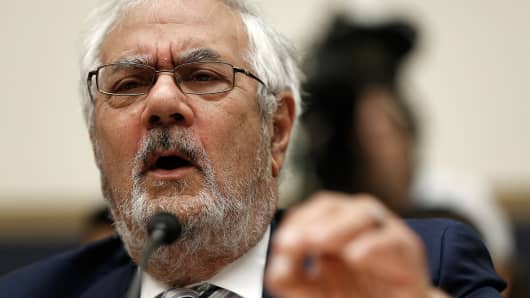I write this in anticipation of the debate on the Senate Banking Committee bill to amend Dodd-Frank, which is expected to begin next week.
The history behind this current debate begins with the Republican takeover of Congress in 2010. Having just passed by the narrowest possible margin a comprehensive law covering most aspects of financial regulation, my colleagues and I expected over the next few years to begin the process of fixing things we hadn't been able to reach or might, based on experience, wish to reconsider.
While some relevant issues emerged as early as 2012, just as I retired from Congress, it wasn't until President Obama's reelection that we could be sure that the law would survive, and there was no point in trying to fine tune a plane that might have been headed for the scrap heap. So, 2013 was the first year in which it made sense to consider how a very good law could be made better.
In the spring of 2013 Federal Reserve governor Dan Tarullo, the de facto Fed Vice-Chairman for Regulation, proposed the two changes in the law that are the most salient aspects of the bill now pending in the Senate. He urged exempting banks with less than ten billion in assets from the Volcker Rule, and raising the level of assets which put a bank under the jurisdiction of the Financial Stability Oversight Council above $50 billion.
Then newly retired, I attended the conference in Chicago at which he made the speech and publicly expressed my agreement on both points. I did so based on the combination of political and substantive considerations which have formed the basis of my views on the issue ever since.



